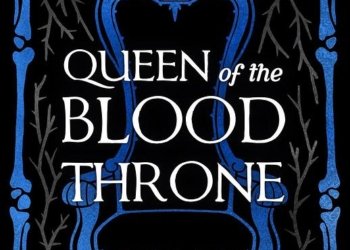No products in the cart.
Age of Empyre by Michael J Sullivan (Legends of the First Empire: Book 6)
I’ll be open and honest with you all. The last two books in Michael J. Sullivan’s “The Legends of the First Empire” series, Age of Death and Age of Empyre, were read by me back-to-back, and I am now evaluating both works after having done so. But I think you’ll give me the benefit of the doubt on this one because Sullivan deliberately created the two volumes with such a significant and heartbreaking cliff-hanger and published them so soon after one another.
Age of Empyre ups the emotional intensity and mythological scope of Sullivan’s writing, but what is most engrossing and emotionally moving is Brin’s story in the first place, and the way the author pulls back the curtain on her character as portrayed throughout the series, allowing us to see what makes her unique.
When Brin was running for her life and the lives of everyone else in the middle of the book, it was very stunning — nearly singular in a way that hardly ever occurs these days. With each step Brin took, a stunning and alluring visual portrayal of her intrinsic “good-ness” was wonderfully executed and conveyed.
Not to be outdone, however, three different settings within the narrative offered comparable, albeit slightly less striking images of “good-ness” and inner quality. Suri’s story was beautifully written, but if the twist hadn’t been executed so flawlessly and compellingly, it might have appeared to be an authorial plot device (not to mention, hitting on all the right sentimental chords).
Because no one who experiences major life events ever emerges from them instantly changed and with everything neatly wrapped up in a bow, the loss and gain of her experience with the elves is not finished as such, Sullivan’s skill at creating his characters is once again demonstrated. Although the story of Roan and Gifford captured my attention as well, I actually like the character development of Moya and Tekchin, if only because I can more easily identify with them.
Age of Empyre’s narrative, in my opinion, was performed to the smallest detail and led to two conclusions: one for the book’s immediate story and another for the greater series, which served to direct the series toward “The Riyria Revelations.” As you close the final pages of Age of Empyre, keep in mind that there is still more to come. A new series that debuts in 2021 will pick up at some point during the lives of some of the characters we met in Legends, and some of the loose ends that will be picked up there can be seen flapping easily in the breeze.
I cannot applaud Michael J. Sullivan and his “The Legends of the First Empire” series enough, even though this review is shorter than my last one. The series’ pinnacle, Age of Empyre, is a colossal triumph above the already outstanding series. Few authors will ever be able to create characters as vividly as Sullivan does, who writes with a lovely moral compass. Though mind-boggling, mythological imagination is grounded in fact and provides a historical context for what we have already seen and read thousands of years in the past in this imagined future.
Age of Empyre and the entire Legends series may find it difficult to surpass “The Riyria Revelations” for the mere reason that Royce and Hadrian are absent, but only by the slimmest of margins.
The Review
Age of Empyre
9.5 Score
Wow, a great detailing of events that lead up to what we've already read. The poor reviews truly come from the impatient that have no imagination for prequels. We are slowly understanding where the story of Riyria began and why things happened.
PROS
- Great fantasy world….prequel!
- Awesome end and beginning.
- An adventure that you won’t want to put down.
- Absolute knock outta the park!!
CONS
- Thoroughly unhappy ending.
- Book 6 a Complete Disappointment.
- MJS, what happened???
- What a tedious, boring and disappointing end!











